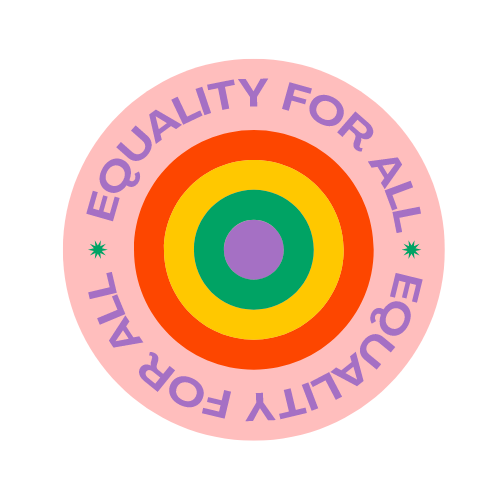
IDENTITY & WHOLE BEING
Identity Exploration in Therapy
Having a strong sense of your own identity can help you feel grounded as you make choices, build relationships, and navigate your life. Therapy provides an ideal space for self-exploration and reflection. It can be helpful to have a nonjudgmental and objective witness to walk alongside you as you explore the different parts of what makes you who you are. This type of work can be especially helpful if you’re struggling with feeling an incongruence between your inner and outer life, or between your true self and how others perceive you.
I hold a foundational belief that we all long for a sense of belonging in this world. But when we feel we belong to ourselves, we have more peace and freedom to grow, explore, take risks and create.
I recognize that claiming authentic selfhood is different for every individual. Some face more societal barriers than others out of fear of punishment for being their true selves. We can compassionately explore any conflicts between intersecting identities — across gender, sexual, social, family, professional, religious, ethnic, cultural, and racial identities.
“It wasn’t until I accepted myself just as I was that I was free to change.” - Carl Rogers
In everything is a hidden wholeness
Does it feel like parts of you are in conflict with each other? Have you been curious about where you learned messages of how or who you should be in this world? Have you experienced shame or rejection for identifying a certain way in your life? How have you attached to or worked to defy stories, labels, traits, or qualities you’ve collected along the way?
Throughout our lives, we learn to internally accept and reject parts of ourselves, just as others have done with us. This can leave us feeling fragmented, like we have to leave the “broken” parts of us behind and step into a new identity time and time again. The truth is, that act of self-rejection creates a deeper wound.
Even messaging around parts that were continuously celebrated may place an unhealthy pressure on you to keep those at the forefront of who you are — for example, praise for intelligence, achievement, work ethic, athleticism, and selflessness.
Self-acceptance requires self-exploration
Repair requires awareness of the whole system we are working with — the embraced and celebrated parts, as well as the dejected, hurt, shamed, and repressed parts. I provide a safe space to encourage the unfolding of all your intricate layers so you can distinguish your wounds and conditioning from who you are at the core. We can’t change the events of our past, but we can change how we relate to them.
Seeds were planted long ago
When we explore intergenerational patterns or trauma that may influence your identity, the question we’re really getting at is, “What happened before you?” More specifically, you may start to ask yourself, “What are the patterns reflected down my family line, and what have I ingested? What were the messages passed down — the loving words, the criticisms, the wisdom…?” We are the products of both our ancestors’ struggles and their resiliency. These gifts and burdens may have a greater impact on us today than we realize. This type of processing can build insight that can be a bridge to compassion, for ourselves and for others.
Seeking healing for yourself is one of the most responsible things you can do as a human, parent, child, friend, and partner. When we mindfully tune into the stories, messages, and trauma passed down unconsciously through family dynamics and behaviors, we can be intentional about the narrative we are passing on. Find the support and tools to explore these cycles, recognize your resiliency, and elect ways of being that resonate with who you are today.
“As you train your whole self to be your best self, you reclaim long-overlooked aspects of your inherent worth, dignity, and personal power. You come to embody clarity of purpose, steady resilience, greater compassion, and more effective communication.”
— Amanda Blake, Your Body Is Your Brain
Asian-Americans Seeking Therapy
As an Asian-American therapist, understanding humans through the context of their culture and multifaceted identities is an essential part of my clinical lens.
Spotting patterns of intergenerational trauma in your family’s lineage
Parentification (parent-child role reversal)
Childhood emotional neglect
Secrecy around mental health issues and stigma around accessing care
Racial trauma and microaggressions
Developing assertiveness at work and in relationships
Coping with the increased climate of hate since COVID-19
Common themes I explore with AAPI clients:
Navigating relationships with parents as they age
Interracial dating or marriages
Raising biracial children
The effects of the model minority myth on the development of self-esteem
Perfectionism and people-pleasing as inherited adaptive coping strategies to manage others’ expectations and ward off anxiety
Engaging in practices that reinforce and nurture a positive cultural identity and connection to community






